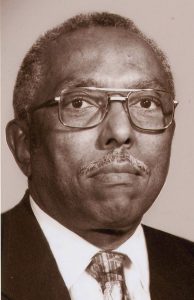Dr. Henry Waiters: The gods of convenience
Published 12:00 am Saturday, August 3, 2019

Henry Waiters, ThD
In the book of 1 Kings 12: 25-33, we learn that after Jeroboam had taken the 10 tribes from Rehoboam and set up the Northern Kingdom, he was worried that his devout subjects still felt obliged to worship Yahweh at the temple in Jerusalem. Jeroboam feared that if his people were to continue their pilgrimage to Jerusalem they might come under the the influence of Rehoboam, who ruled in that city. He devised a plan to prevent this danger. He set up two golden calves and then said to his people, “It is too much for you to go to Jerusalem: behold thy gods” (vs. 28).
Jeroboam’s appeal to convenience seems quite in line with our modern idea of progress. If we were asked how our present-day civilization is superior to former modes of living, would not most of us cite our material comforts and conveniences? Houses are more commodious, work hours are shorter, labor is being delivered from drudgery. Ours has been called “a sitting civilization.”
Jeroboam was applying the principle of comfort and convenience to the realm of religion. Some today consider these factors in locating churches. We often agree that the church will succeed if it gives the people what they want. This argument sounds plausible; the church is to serve the people. Religion should be made winsome and attractive. Make the sanctuary as beautiful and comfortable as possible, improve the music, popularize the themes.
But how far can this cult of comfort be safely carried in the sphere of religion? There is a certain propriety in the church’s studying how to attract people, how to make its message appealing, how to bring aching hearts the healing touch of the Great Physician. But one must remember that the church of the living God must serve the needs of men rather than cater to their desires, must make people be good rather than merely feel good. The cross is not a couch, and the Gospel of the crucified Christ cannot be harmonized with physical comfort.
After Jeroboam appeals to his subjects to worship the gods conveniently near at hand, the Bible adds, “And this thing became a sin” (vs. 30). Why?
To the writer of 1 Kings the sin lay in the idolatrous worship of golden calves in Dan and Bethel. When transposed into modern thought, the cult of convenience becomes a sin by separating a soul from the one true God. God is a Father, and his children keep in communion with Him by cultivating the same attitudes which hold children to an earthly parent — obedience, discipline, respect, study and self-sacrifice. The child’s petulant desires of the moment must yield to the parent’s longer experience. If the child grows up seeking always his own convenience and pleasure, he becomes spoiled, automatically alienating himself from understanding fellowship with the parent. The lad who never learns to put himself out to help or please his father does not learn how to take in what his father can give him.
Families who try to run on the principle of personal comfort without sacrificial cooperation are headed for the rocks. If we are to take in friendship, love and God, we must put ourselves out to meet, help and please people; our circle of interest and affection shrink. Psychologist Henry C. Link, observing this principle in human relations, applied it to the religious realm and gave the following reasons for going to church:
“I go because I would rather lie in bed late on Sunday mornings; I go because I would rather read the Sunday’s papers. I go because I know it will please my old father, when he learns of it, and my parents-in-law whom I shall undoubtedly see there. I go because I shall meet and have to shake hands with people, many of whom do not interest me in the least, because if I don’t go, my children consider that they have a good reason for not going to Sunday School. I go but do not believe in all the doctrines of this church or any other church and may disagree with much of what the minister has to say. I go, in short, because I hate to go and because I know that it will do me good.”
The only way to make room for our God in our lives is to put ourselves out. And those who will not be “put out” for Him separate themselves from Him and stunt their own growth. The ego is like a cell which over-asserts itself and causes cancer. The self-centered, self-willed person who wants everything, even his religion, adjusted to suit his own convenience is starting a cancerous growth within his spirit. The gods of comfort lead but to the grave.
If a community has a church that models the Church of the Lord Jesus Christ, it becomes a transformed community. In such a community the pastor and teachers are guided by Isaiah 58:1 — “Cry aloud, spare not, lift up thy voice like a trumpet, and show my people their transgressions and the house of Jacob their sins.” When these voices are heard, understood, believed and received, then conviction, repentance and conversion follows. The Words of God to Solomon become today’s actuality: “If my people, who are called by my name, shall humble themselves and pray and seek my face and turn from their wicked ways; then I hear from heaven and will forgive their sin and will heal their land” (2 Chronicles 7:14).
Dr. Waiters can be reached at 704-636-3369.


